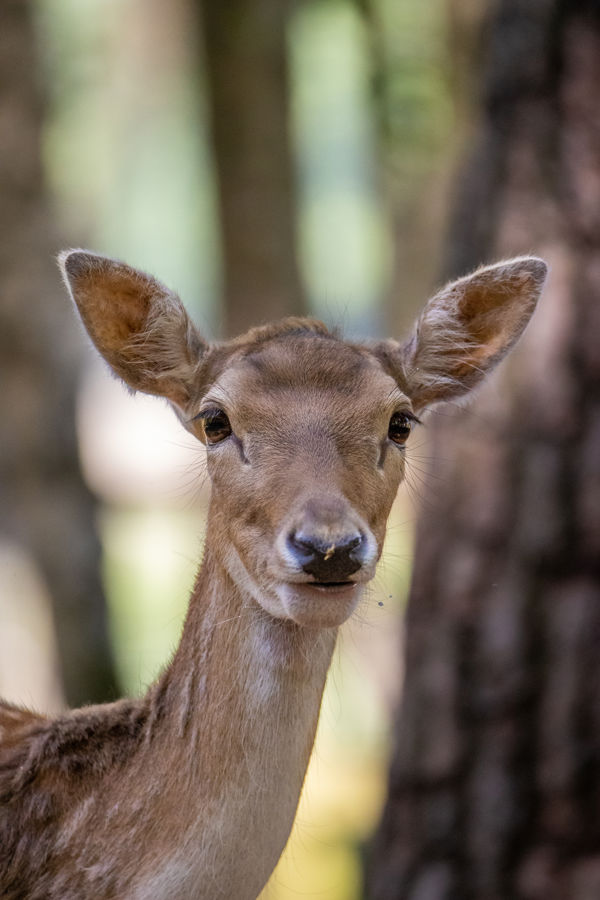‘Tim’ the rescued tawny owlet
31st Jul 2024
Brought in to us on the 4th of June by a couple of lovely ladies, a tiny fluffy tawny owlet was discovered on the floor far from any tree’s, hedges or bushes and too young to be alone with no evidence of mum around.
Tawny owls will nest in a hollow in trees, old nests of other birds or old squirrel dreys. If no suitable nest site can be found, they will nest at the bottom of a tree. Because of this, it is very important to check for evidence of mum before moving an owlet from the ground. It is commonly thought that an owlet out of a nest is in need of help, but they are very likely still being fed and watched by mum!
We believed the owlet to be around 1 to 2 weeks old and after a quick checkup at a local vet practice, it was determined that the owlet was uninjured but of course would have needed their mum and dad for the following three months until they would have become independent.
Luckily our team of brilliant keepers were more than happy to step up and take on the role of both parents. The first couple of weeks, each of our keepers took turns taking the owlet home with them for around the clock care and overnight feeds until it was old enough to stay at the park overnight alone. Although the keepers are ensuring the owlet does not bond with them (which will lead to a successful wild release) the team have named the owlet Tim and are very proud watching Tim grow into an independent owl!
Now at just over two months old, Tim has moved into one of our quiet off show aviaries to stretch their wings and learn how to fly. With their cute downy feathers molting and their new flight feathers growing through, Tim is well on the way to complete independence.
Although the most common of the UK's five owl species, the UK’s population of tawny owls is on the decline. Threats to the species include the loss of woodland habitat and the decline of prey populations due to climate change. But it’s not just the tawny owls we worry about, all owl species in the UK are a cause for concern as their populations are all declining!
Here at the New Forest Wildlife Park we aim to support our native owl species through education and conservation. Join us this summer to learn more about these magnificent birds of prey.

Sign up to our newsletter
Join our mailing list in order to keep up to date with park news and special offers.



